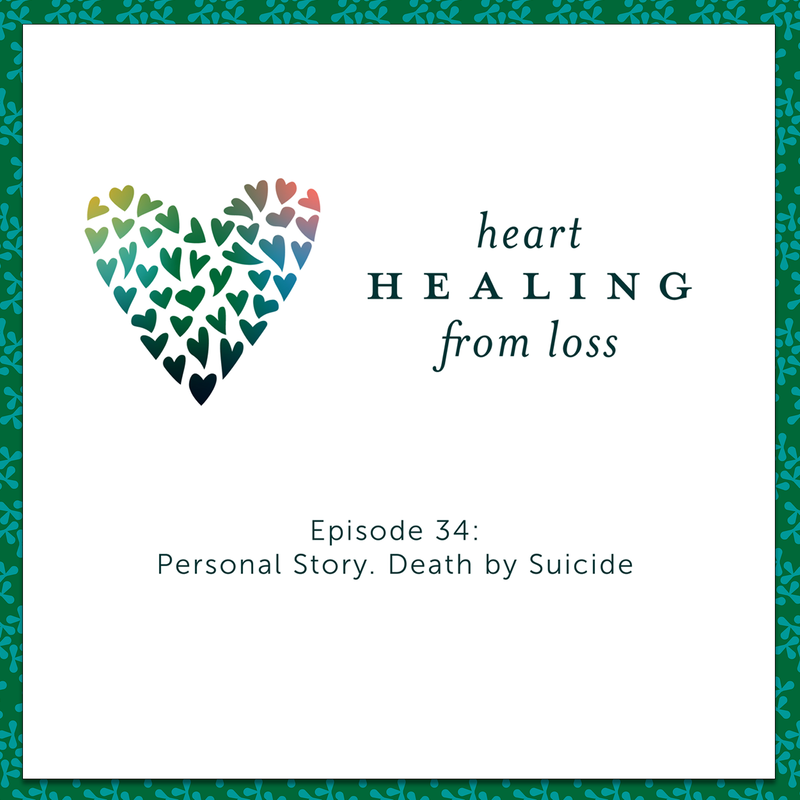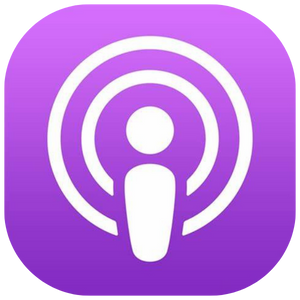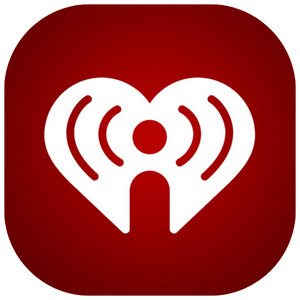Episode 34: Personal Story. Death by Suicide
|
Content warning: Discussion of death by suicide.
How do you show up for a friend who has lost someone to suicide? What do you say? What do you not? Should you bring something? Do something? What should you expect? Navigating someone else's grief can be a mine field. You don't want to cause further pain, but not doing anything doesn't feel right either. Your Reaction is Unique And what should you expect? Anything, everything, and nothing. If you've been listening to Wendy's podcast, you know that everyone's experience of grief and process through grief and reaction to grief is unique to them. |
You are Invited:
Listen in on how Wendy is helping a friend through grief while dealing with her own sadness. It's life: up close and personal.
For more help, visit hearthealingfromloss.com.
Listen in on how Wendy is helping a friend through grief while dealing with her own sadness. It's life: up close and personal.
For more help, visit hearthealingfromloss.com.
As seen on: |
|
Full Episode Transcript
Wendy Sloneker
Hi, you are listening to Episode 34 of Heart Healing from Loss podcast with Wendy Sloneker. I do want to gently issue a bit of a content warning, I share a little bit about my experience of new loss to me, and that is death by suicide. I do not name names. I do not mention particulars. But the topic does come up around my personal experience, try to express it very gently and very respectfully. Please, be careful of yourself and your emotions. And listen, if you would like, Thank you.
Well, hi. Hi, it's Wendy. I'm back. And I felt pretty reticent about coming on with with another podcast episode. And this has nothing to do with me not loving connecting with you. This has to do with the very real happenings that happen in life. And sometimes it feels like, oh my gosh, when is this going to stop? Probably not going to stop.
So what I mean by that in order to not sound totally cryptic, is life has been happening, kind of almost on tilt, definitely 100%. And I haven't loved everything that's been going on. Some of it's been really challenging. Some of it's been really painful. And some of it's been stunning, like in a way that you're like, wait, what, really what?
So, I offer this as a way of normalizing life experience. Because sometimes things happen in life that just sort of knock you out of your regular routine, you're not actually available for your routine. And so that's some of what has been going on with me personally. So I am going to talk a little bit more personally because, hey, also real human person having life experience over here Hi. And I have experienced a loss that is new to me. It may not be new to you. But it is new to me. And it's something that I am struggling with. On and off. I certainly was back when it happened.
So I want to share that it was the day after Easter this year in 2022. That someone I know who I care about, they died by suicide. And so that's the thing that was so shocking to me like stunning in a way that I felt like I had been catapulted out of my body a little bit just in shock. Stunned is really the right word. And so hold on, let me get my tea, because that's what we're having right now is we're having hibiscus with rose hips and elderberry for those who, you know, really need to know.
But back to this so stunning and shocking and tremendously sad. And with that this this was somebody who I would call I would consider a sweetly warm acquaintance, just a just a hair shy of friendship, but very friendly and warm. I can't say I knew him very well, but I know his person really well. And this has been a new experience for me, as well as for her. And I of course I didn't know how it would feel. Of course, I didn't know what it would be like.
Now I'm understanding what some of it is for me around this person. So that's just one of the few things that has been going on and it's it is sad. I definitely feel a sense of loss. I feel some confusion and some bafflement, truly. And so this comes back and I think I just really want to offer that we don't know how other people feel. We can't like it's plenty of a job to like know how we feel like how I feel. It's plenty of a job for me to know how I feel with my clients. And I often share that I'm not going to know how they feel. And neither is anyone else. We, we can't, we only know what our experience is with our own losses. And this is where communication is great. And slash, but, you know, with something that rocks you so deeply, it can be really difficult to find any words, or have any words.
So I want to offer some space around like the nonverbal silence or just presence of that being really needed. Checking in with someone who's recently experienced a loved one who died by suicide can be, gosh, there are so many words, I just talked about not having the words, and all of a sudden, I don't have the words.
So offering support to a loved one whose person has died by suicide. It, here's what I want to offer, please don't ask them how they're doing. Please, one thing that you could do that would modify that just slightly, but make a big difference is how are you doing today? Sort of recognizing that I'm checking in about how today is or how this moment is? Or how are you holding up today, this is the unspoken way of recognizing a season that that is just, you know, unknowably tough, or challenging or devastating or stunning.
And so offering support is great. Offering it in a way that recognizes the season or the change, because, you know, in my work, it's it's often painful for people whose lives have been sort of like the snow globe effect where they feel like it's been shaken by a giant, like their life has been shaken like a snow globe by a giant. And everything's different. It's upside down, it's back to front, it's front to back and side to side. It's like the Willy Wonka elevator, if you will, where we're going kind of like we're pressing all the buttons. And we're kind of being tugged in some different ways around our lives and don't know exactly where we are. Other than this is foreign. This is unfamiliar, this doesn't make sense to my brain or my body to not have this person on the planet anymore.
And this is the best I can do it. It's like it's a time warp, there's a fog, there's some anger or there's not, there are some tears, or there's not very challenging. And so just gently touching in and saying I'm thinking about you, you don't have to respond is a way to let people know that you're thinking of mum. And also all the niceties of back and forth communication is you know, not necessary. The pressures off the pressures off around responding, I'd love to hear from you, when you have a minute, I don't really have much to say I just wanted to let you know I'm thinking of you.
Showing up with a bag of groceries is going to be infinitely more helpful than asking what it is they need or could use. The sending a gift card for some sort of food item is great. If you don't know their dietary restrictions or allergies, that sort of stuff. And for those who have suffered a loss by suicide, chances are good that some people may be showing up at the house. And it's always good to offer something to eat. Just dropping off the groceries at the door is something that I offer to people who I know who have gone through just either a sudden loss and certainly the the loss by suicide was something that I offered, like, Hey, I'm happy to come in and sit for a visit and it's not necessary. I have some groceries, I'm on my way, I'm just going to drop them at your door.
This is a way of showing support. That is also really I don't know if reinforcing is the right word, but gently offering that you don't have to do anything, here's what I'm doing. You don't have to do anything. Here's what to expect. And let that be. Let it be. It makes a big difference. Now, navigating my feelings versus supporting someone else is also a thing. Right?
So navigating your feelings and supporting someone else is a thing, like having those boundaries, having that clear sense of, yeah, I feel like I want to connect. And I also want to be clear around, taking care of myself relying on myself in order to go through my own emotions. So I can show up for another person, this is boundaried work like grief work is boundaried work, not saying you can't connect, not saying that empathy is not really useful connection and empathy are amazing. And what we bring is important. So if we're bringing our pain, that may not be as useful if we are wanting to show up for and be with someone else. And this is kind of a tricky thing. This is why I like really wanted to be trained.
This is why, you know, being professional is really important for me. So I'm about to take a deeper dive and I wanted to let you know what's going on this summer for me. I am not stopping this podcast at all. I do recognize and own that it's been almost two months or several weeks since an episode has come out. And that is, I just didn't have it. I didn't have it. And I certainly don't want to be calling it in, not with you. And not about this.
So I'm sorry for the lapse. And at the same time, I'm also really proud of myself for taking the time that I needed in order to recoup. And I haven't 100% recouped. That's okay, I still have tools, I still know what to do.
I may not always want to do it. But having some grace and allowing for those feelings to be here with me. While I'm here with you without it affecting us. This is a thing. This is the boundary to work right. So what I was going to share is
I have the immense pleasure and it's right on time given these life events that have been happening in my personal life, to begin training and working with the one and only David Kessler and David Kessler. For those who may not may have heard his voice may not have heard his voice or his name. He is a person who has experienced tremendous personal loss in his own dear life, but he also has worked with some really illustrious people in the world of personal transformation, and also death and dying in the death care arena.
He has written a book with at least one maybe more with the late Louise Hay of Hay House Publishing, oh my gosh. And he also wrote a book, at least one with Elisabeth Kübler-Ross, who is known for her book on death and dying. This is related indeed to where the Stages of Grief it's actually the stages of, of death and dying. It was written for those who were actively dying and not for those who are grieving.
But us. Grievers have been so starved for information about how to navigate loss that is often scooped up and offered as a linear form of of processing or going through grief. Grief is not linear, holy moly, and it was never intended. Kübler-Ross and David Kessler, they never intended it to be taken as a linear process. This is not step by step. It's just not there may be elements where you recognize a stage or a phase or a season, if you will, denial or anger or bargaining.
These are things that may resonate with you. And so they're offered in a state of help and service in order to help you identify but that doesn't mean you know, we go from this stage to this stage to this stage and it was never intended to be taken as such.
We humans really, really like step by step and we like routine and we like to know what to expect. That's not how grief works. That's not how feelings of loss work it. It just isn't. I'm gathering more tools by working directly with David Kessler starting this week. And so I am Excited to begin work with him. I'm also really feeling glad to have done this episode with you here today. And to continue in this podcast journey together.
Will you join me? When you come back for more episodes? I sure do hope so because my expansion and my tools of learning how to walk through and release pain in order to be more present, be more here. And to feel better is totally, totally what this is all about. I want to feel better. I want to share how to feel better, some ideas, some options, some things for you to try on. And I want to hear how it's going.
And if you're ready, and you want to work with me directly, I want to hear about that, too. All right, sweet friends. I'm so glad to talk with you for a few minutes. Right here right now. In fact, let's do it again. Really soon
Okay. Bye for now.
Hi, it's Wendy, thank you so much for listening. If something resonated or stuck out or sort of hummed with you in this episode, and you want to either talk more about it, or have me talk more about it, let's schedule a connection call. It could be that you are ready to learn how to release emotional pain. The sounds great. It's great to do and it's great on the other side.
Regardless, you're invited. So if you think it's time for a free 30 minute connection call, I would love to have that with you. Go to Wendy at heart healing from loss.com to email and schedule or you can text or call 206-498-8025 to five and schedule it that way. I would love to talk with you and I would love to listen to you too.
Thank you and thanks for coming back for the next episode too.
Hi, you are listening to Episode 34 of Heart Healing from Loss podcast with Wendy Sloneker. I do want to gently issue a bit of a content warning, I share a little bit about my experience of new loss to me, and that is death by suicide. I do not name names. I do not mention particulars. But the topic does come up around my personal experience, try to express it very gently and very respectfully. Please, be careful of yourself and your emotions. And listen, if you would like, Thank you.
Well, hi. Hi, it's Wendy. I'm back. And I felt pretty reticent about coming on with with another podcast episode. And this has nothing to do with me not loving connecting with you. This has to do with the very real happenings that happen in life. And sometimes it feels like, oh my gosh, when is this going to stop? Probably not going to stop.
So what I mean by that in order to not sound totally cryptic, is life has been happening, kind of almost on tilt, definitely 100%. And I haven't loved everything that's been going on. Some of it's been really challenging. Some of it's been really painful. And some of it's been stunning, like in a way that you're like, wait, what, really what?
So, I offer this as a way of normalizing life experience. Because sometimes things happen in life that just sort of knock you out of your regular routine, you're not actually available for your routine. And so that's some of what has been going on with me personally. So I am going to talk a little bit more personally because, hey, also real human person having life experience over here Hi. And I have experienced a loss that is new to me. It may not be new to you. But it is new to me. And it's something that I am struggling with. On and off. I certainly was back when it happened.
So I want to share that it was the day after Easter this year in 2022. That someone I know who I care about, they died by suicide. And so that's the thing that was so shocking to me like stunning in a way that I felt like I had been catapulted out of my body a little bit just in shock. Stunned is really the right word. And so hold on, let me get my tea, because that's what we're having right now is we're having hibiscus with rose hips and elderberry for those who, you know, really need to know.
But back to this so stunning and shocking and tremendously sad. And with that this this was somebody who I would call I would consider a sweetly warm acquaintance, just a just a hair shy of friendship, but very friendly and warm. I can't say I knew him very well, but I know his person really well. And this has been a new experience for me, as well as for her. And I of course I didn't know how it would feel. Of course, I didn't know what it would be like.
Now I'm understanding what some of it is for me around this person. So that's just one of the few things that has been going on and it's it is sad. I definitely feel a sense of loss. I feel some confusion and some bafflement, truly. And so this comes back and I think I just really want to offer that we don't know how other people feel. We can't like it's plenty of a job to like know how we feel like how I feel. It's plenty of a job for me to know how I feel with my clients. And I often share that I'm not going to know how they feel. And neither is anyone else. We, we can't, we only know what our experience is with our own losses. And this is where communication is great. And slash, but, you know, with something that rocks you so deeply, it can be really difficult to find any words, or have any words.
So I want to offer some space around like the nonverbal silence or just presence of that being really needed. Checking in with someone who's recently experienced a loved one who died by suicide can be, gosh, there are so many words, I just talked about not having the words, and all of a sudden, I don't have the words.
So offering support to a loved one whose person has died by suicide. It, here's what I want to offer, please don't ask them how they're doing. Please, one thing that you could do that would modify that just slightly, but make a big difference is how are you doing today? Sort of recognizing that I'm checking in about how today is or how this moment is? Or how are you holding up today, this is the unspoken way of recognizing a season that that is just, you know, unknowably tough, or challenging or devastating or stunning.
And so offering support is great. Offering it in a way that recognizes the season or the change, because, you know, in my work, it's it's often painful for people whose lives have been sort of like the snow globe effect where they feel like it's been shaken by a giant, like their life has been shaken like a snow globe by a giant. And everything's different. It's upside down, it's back to front, it's front to back and side to side. It's like the Willy Wonka elevator, if you will, where we're going kind of like we're pressing all the buttons. And we're kind of being tugged in some different ways around our lives and don't know exactly where we are. Other than this is foreign. This is unfamiliar, this doesn't make sense to my brain or my body to not have this person on the planet anymore.
And this is the best I can do it. It's like it's a time warp, there's a fog, there's some anger or there's not, there are some tears, or there's not very challenging. And so just gently touching in and saying I'm thinking about you, you don't have to respond is a way to let people know that you're thinking of mum. And also all the niceties of back and forth communication is you know, not necessary. The pressures off the pressures off around responding, I'd love to hear from you, when you have a minute, I don't really have much to say I just wanted to let you know I'm thinking of you.
Showing up with a bag of groceries is going to be infinitely more helpful than asking what it is they need or could use. The sending a gift card for some sort of food item is great. If you don't know their dietary restrictions or allergies, that sort of stuff. And for those who have suffered a loss by suicide, chances are good that some people may be showing up at the house. And it's always good to offer something to eat. Just dropping off the groceries at the door is something that I offer to people who I know who have gone through just either a sudden loss and certainly the the loss by suicide was something that I offered, like, Hey, I'm happy to come in and sit for a visit and it's not necessary. I have some groceries, I'm on my way, I'm just going to drop them at your door.
This is a way of showing support. That is also really I don't know if reinforcing is the right word, but gently offering that you don't have to do anything, here's what I'm doing. You don't have to do anything. Here's what to expect. And let that be. Let it be. It makes a big difference. Now, navigating my feelings versus supporting someone else is also a thing. Right?
So navigating your feelings and supporting someone else is a thing, like having those boundaries, having that clear sense of, yeah, I feel like I want to connect. And I also want to be clear around, taking care of myself relying on myself in order to go through my own emotions. So I can show up for another person, this is boundaried work like grief work is boundaried work, not saying you can't connect, not saying that empathy is not really useful connection and empathy are amazing. And what we bring is important. So if we're bringing our pain, that may not be as useful if we are wanting to show up for and be with someone else. And this is kind of a tricky thing. This is why I like really wanted to be trained.
This is why, you know, being professional is really important for me. So I'm about to take a deeper dive and I wanted to let you know what's going on this summer for me. I am not stopping this podcast at all. I do recognize and own that it's been almost two months or several weeks since an episode has come out. And that is, I just didn't have it. I didn't have it. And I certainly don't want to be calling it in, not with you. And not about this.
So I'm sorry for the lapse. And at the same time, I'm also really proud of myself for taking the time that I needed in order to recoup. And I haven't 100% recouped. That's okay, I still have tools, I still know what to do.
I may not always want to do it. But having some grace and allowing for those feelings to be here with me. While I'm here with you without it affecting us. This is a thing. This is the boundary to work right. So what I was going to share is
I have the immense pleasure and it's right on time given these life events that have been happening in my personal life, to begin training and working with the one and only David Kessler and David Kessler. For those who may not may have heard his voice may not have heard his voice or his name. He is a person who has experienced tremendous personal loss in his own dear life, but he also has worked with some really illustrious people in the world of personal transformation, and also death and dying in the death care arena.
He has written a book with at least one maybe more with the late Louise Hay of Hay House Publishing, oh my gosh. And he also wrote a book, at least one with Elisabeth Kübler-Ross, who is known for her book on death and dying. This is related indeed to where the Stages of Grief it's actually the stages of, of death and dying. It was written for those who were actively dying and not for those who are grieving.
But us. Grievers have been so starved for information about how to navigate loss that is often scooped up and offered as a linear form of of processing or going through grief. Grief is not linear, holy moly, and it was never intended. Kübler-Ross and David Kessler, they never intended it to be taken as a linear process. This is not step by step. It's just not there may be elements where you recognize a stage or a phase or a season, if you will, denial or anger or bargaining.
These are things that may resonate with you. And so they're offered in a state of help and service in order to help you identify but that doesn't mean you know, we go from this stage to this stage to this stage and it was never intended to be taken as such.
We humans really, really like step by step and we like routine and we like to know what to expect. That's not how grief works. That's not how feelings of loss work it. It just isn't. I'm gathering more tools by working directly with David Kessler starting this week. And so I am Excited to begin work with him. I'm also really feeling glad to have done this episode with you here today. And to continue in this podcast journey together.
Will you join me? When you come back for more episodes? I sure do hope so because my expansion and my tools of learning how to walk through and release pain in order to be more present, be more here. And to feel better is totally, totally what this is all about. I want to feel better. I want to share how to feel better, some ideas, some options, some things for you to try on. And I want to hear how it's going.
And if you're ready, and you want to work with me directly, I want to hear about that, too. All right, sweet friends. I'm so glad to talk with you for a few minutes. Right here right now. In fact, let's do it again. Really soon
Okay. Bye for now.
Hi, it's Wendy, thank you so much for listening. If something resonated or stuck out or sort of hummed with you in this episode, and you want to either talk more about it, or have me talk more about it, let's schedule a connection call. It could be that you are ready to learn how to release emotional pain. The sounds great. It's great to do and it's great on the other side.
Regardless, you're invited. So if you think it's time for a free 30 minute connection call, I would love to have that with you. Go to Wendy at heart healing from loss.com to email and schedule or you can text or call 206-498-8025 to five and schedule it that way. I would love to talk with you and I would love to listen to you too.
Thank you and thanks for coming back for the next episode too.






